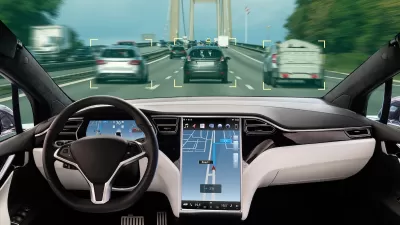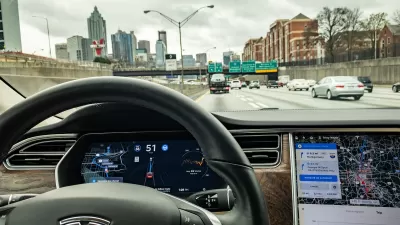Thousands of leaked safety complaints about the electric carmaker reveal a pervasive effort to hide problems from the public and prevent customers from filing lawsuits.

A data leak containing thousands of internal Tesla documents outlining safety complaints with the company’s automated driving technology shows that problems may be more widespread than previously thought, according to an article by Russ Mitchell in the Los Angeles Times.
The leaked files “spotlight Tesla’s attempts to keep safety complaints secret and what appears to be a strategy to limit customer communications that might end up in lawsuits,” Mitchell writes, highlighting four key points from the first article published about the leak in the German newspaper Handelsblatt. The documents, which include thousands of customers complaints about Tesla vehicles, reveal a systematic effort to avoid communicating with customers in writing, with the company advising employees explicitly, “Do not copy and paste the report below into an email, text message, or leave it in a voicemail to the customer.”
Tesla has also historically tried to prevent customers from publicizing their complaints. “As far back as 2016, the National Highway Traffic Safety Administration had to announce that customers were allowed to publicize safety issues after reports that Tesla was requiring customers to sign nondisclosure agreements to qualify for warranty repairs on problematic Model S suspension systems.”
The leaked documents could become evidence in lawsuits against the company “and could prompt state and federal regulators to finally take action,” says Mitchell. Tesla is already under investigation by the federal government and came under fire in California for using the term “Full Self-Driving,” which can be misleading to consumers.
FULL STORY: Huge Tesla data leak reportedly reveals thousands of safety complaints. 4 things to know

Alabama: Trump Terminates Settlements for Black Communities Harmed By Raw Sewage
Trump deemed the landmark civil rights agreement “illegal DEI and environmental justice policy.”

Planetizen Federal Action Tracker
A weekly monitor of how Trump’s orders and actions are impacting planners and planning in America.

The 120 Year Old Tiny Home Villages That Sheltered San Francisco’s Earthquake Refugees
More than a century ago, San Francisco mobilized to house thousands of residents displaced by the 1906 earthquake. Could their strategy offer a model for the present?

Opinion: California’s SB 79 Would Improve Housing Affordability and Transit Access
A proposed bill would legalize transit-oriented development statewide.

Record Temperatures Prompt Push for Environmental Justice Bills
Nevada legislators are proposing laws that would mandate heat mitigation measures to protect residents from the impacts of extreme heat.

Downtown Pittsburgh Set to Gain 1,300 New Housing Units
Pittsburgh’s office buildings, many of which date back to the early 20th century, are prime candidates for conversion to housing.
Urban Design for Planners 1: Software Tools
This six-course series explores essential urban design concepts using open source software and equips planners with the tools they need to participate fully in the urban design process.
Planning for Universal Design
Learn the tools for implementing Universal Design in planning regulations.
Clanton & Associates, Inc.
Jessamine County Fiscal Court
Institute for Housing and Urban Development Studies (IHS)
City of Grandview
Harvard GSD Executive Education
Toledo-Lucas County Plan Commissions
Salt Lake City
NYU Wagner Graduate School of Public Service





























